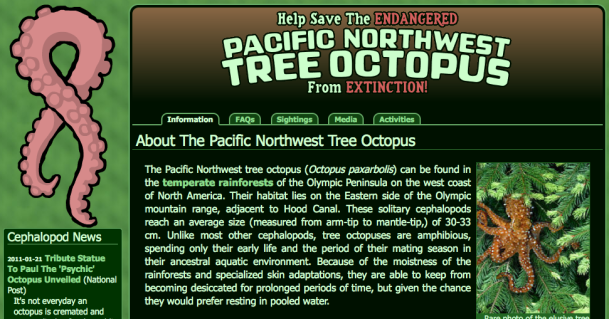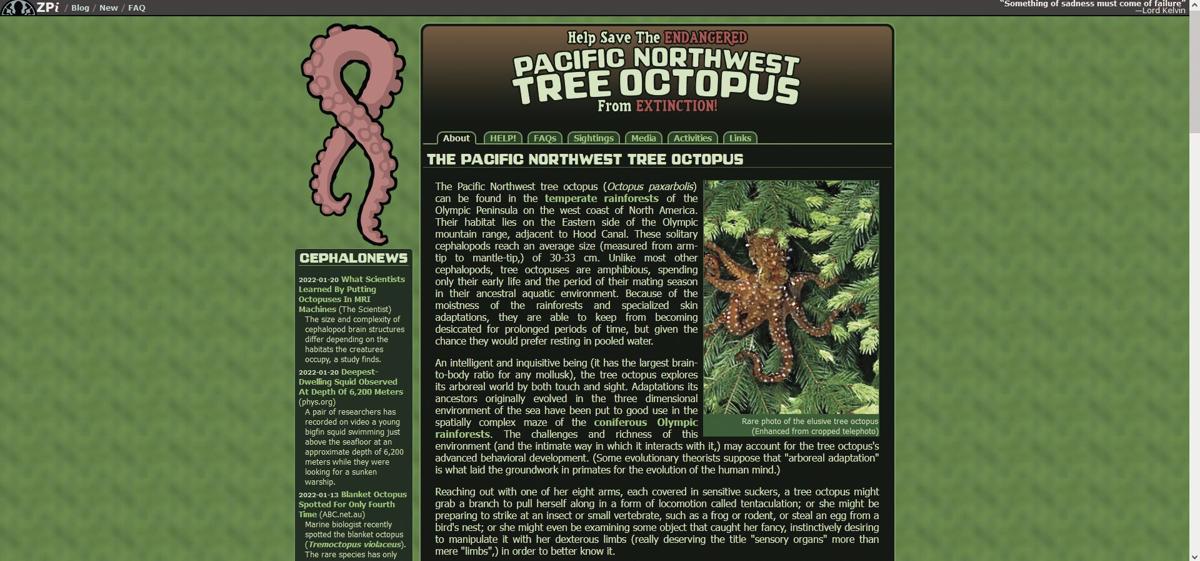The Pacific Northwest Tree Octopus is an Internet hoax created by Lyle Zapato in 1998. This hypothetically endangered species of cephalopod was capable of living on both land and water and was thought to inhabit the Olympic National Forest and surrounding rivers, where it spawned in the water in which its eggs were laid.
According to the International Business Times, researchers led by Dr. Donald Lew created a web campaign to save the fictional octopus from extinction; Tree Octopus in the Pacific Northwest. They have created a fictional website about an imaginary creature that roams the treetops and threatens their existence.

About Tree Octopus
The Pacific Northwest Tree Octopus is an Internet hoax created by Lyle Zapato in 1998. Unlike other octopuses, it is said to be able to live both on land and in water. Original websites describing pseudospecies are used in Internet literacy courses to teach students whether information sources are reliable.
The text includes other fictional species and organizations, interspersed with links to pages about real species and organizations. Despite the lies presented on the website, all 25 seventh graders who took the widely used test believed the content. All but one in 25 rated the site as “very trustworthy”.

These are some claims about octopus.
“The Pacific Northwest tree octopus (Octopus paxerbolis) is found in the temperate rainforests of the Olympic Peninsula on the west coast of North America These solitary cephalopods reach an average size of 30 (measured from the tip of the arm to the tip of the mantle). -33 cm Unlike most other cephalopods, the tree octopus is amphibious and only spends its early life and mating season in its natural aquatic environment.
Researchers reported that the octopus is in danger of extinction, partly because of the fashion industry, which uses the octopus to make decorations for hats. This is where the story gets scary. Most study participants fell for it, hook, line, and tentacle. In fact, not only did the students not believe the tree octopus was real, they also refused to believe the researchers when they told them the animal was fake.

